What are Pressure Vessels
Pressure vessels are containers designed to hold gases or liquids at a pressure substantially different from the ambient pressure. These vessels play a crucial role in various industries, including the chemical, petrochemical, pharmaceutical, and food processing sectors. They are also vital in the energy sector, where they're used in power generation and oil and gas operations.
The construction of a pressure vessel is carefully regulated due to the potential risks associated with storing substances under high pressure. The design and manufacture of these containers typically involve considerations for parameters such as maximum safe operating pressure and temperature, safety factors, materials used for construction, and testing requirements.
Pressure vessels work on the principle of containing the pressure of the encapsulated substance so that it does not pose a danger to people or infrastructure. They are engineered to withstand the specific stresses imposed upon them by the contained media and external environments. This engineering includes the vessel's shape, which is often cylindrical or spherical to distribute stress evenly across the surface area, minimizing weak points.
To ensure safety and performance, pressure vessels are constructed using robust materials like carbon steel or stainless steel and are often lined with materials that are resistant to corrosion or other forms of degradation. They come equipped with various safety devices such as relief valves and burst discs to prevent catastrophic failure in case of overpressure situations.
Types of Pressure Vessels
Pressure vessels come in a wide array of types to serve specific functions across different industries. Each type is tailored to withstand particular pressures and contain certain materials.
Storage Tanks: These are perhaps the most recognizable type of pressure vessels, used to store liquids or gases under pressure. Storage tanks are commonly seen at refineries, chemical plants, and water treatment facilities.
Heat Exchangers: These specialized pressure vessels facilitate heat transfer between two or more fluids at different temperatures without mixing them. Industries such as power generation, refrigeration, and space heating make extensive use of heat exchangers.
Process Vessels: In chemical processing, process vessels are used to contain chemical reactions under high pressure. Their design often incorporates features that allow for heating or cooling during the reaction process.
Autoclaves: These are used for sterilization purposes in the food industry and healthcare settings. Autoclaves use steam under high pressure to kill bacteria and other pathogens on medical instruments, laboratory equipment, or food products.
Boilers: Functioning as both heaters and generators of steam for power or heat, boilers are essential in energy production facilities, on board ships, and in any industrial setting requiring steam production.
Each type has its common use cases that dictate its design, construction materials, safety features, and maintenance requirements.
How to Choose Pressure Vessels
Selecting the right pressure vessel for your business involves understanding the specific needs of your industry and applications. There are several key considerations when choosing a pressure vessel:
Material Compatibility: The material of construction must be compatible with the media being contained to avoid corrosion or degradation that could weaken the vessel.
Design Pressure and Temperature: Ensure that the vessel can handle the maximum expected operating pressure and temperature.
Capacity Requirements: Consider both the volume requirements for your processes as well as any future scaling needs.
Safety Features: Look for vessels with appropriate safety measures like relief valves that align with your operational safety protocols.
Certifications: Depending on your location and industry regulations, certain certifications may be required for operation.
Cost Efficiency: Evaluate not just upfront costs but also long-term maintenance expenses when choosing a pressure vessel.
Best Pressure Vessels on Alibaba.com
Alibaba.com stands out as a premier marketplace for sourcing a wide range of commercial products including pressure vessels. It caters to businesses worldwide by connecting buyers with reputable suppliers that offer an extensive selection of equipment suited for various industries -- from manufacturing plants to food shops. The platform's commitment to facilitating global trade is evident through its user-friendly interface and services like Trade Assurance which protects payments until delivery is confirmed.
When you source pressure vessels through Alibaba.com, you have access to an expansive inventory from suppliers across the globe. You can find vessels built with different materials like carbon steel or stainless steel, designed for numerous applications such as water treatment or chemical storage. Suppliers on Alibaba.com can provide machinery test reports ensuring that you have confidence in your purchase decision.
Moreover, Alibaba.com is designed to accommodate businesses regardless of size. Whether you need one high-value piece of equipment or you're looking to buy in bulk for resale purposes, you'll find suitable options tailored to your needs. With its focus on secure transactions and customer satisfaction, Alibaba.com continues to be an invaluable tool for businesses looking to expand their operations with reliable industrial solutions like pressure vessels.
Common FAQs for Pressure Vessels
What is a pressure vessel?
A pressure vessel is a container designed to hold gases or liquids at a pressure significantly different from the ambient pressure. They are critical components in industries such as manufacturing, chemical processing, and energy production.
What materials are commonly used in the construction of pressure vessels?
Common materials for constructing pressure vessels include carbon steel, stainless steel, aluminum alloys, and sometimes composite materials. The choice of material depends on the intended use and the properties required, such as strength, corrosion resistance, and temperature tolerance.
What safety features are important for pressure vessels?
Safety features for pressure vessels include pressure relief valves, rupture disks, and emergency shut-off systems. These features help mitigate the risk of overpressure incidents and ensure safe operation in various industrial settings.
How are pressure vessels certified for safety?
Pressure vessels are typically certified according to international or local standards, which may include ASME (American Society of Mechanical Engineers) or PED (Pressure Equipment Directive) in Europe. These certifications ensure that vessels meet strict safety and quality requirements before being put into service.
Can pressure vessels be customized for specific applications?
Yes, pressure vessels can often be customized to meet specific operational requirements such as capacity, shape, material, and inclusion of additional components like heating or cooling jackets.
How do maintenance requirements vary among different types of pressure vessels?
Maintenance requirements for pressure vessels depend on their type, size, operating conditions, and the nature of the substances they contain. Regular inspections and testing are necessary to ensure structural integrity and proper function.
Are there any specific industries that use pressure vessels more frequently?
Industries that rely heavily on pressure vessels include oil and gas production, chemical manufacturing, pharmaceuticals, food processing, and power generation. These industries use pressure vessels for storage, reactions, heat exchange, and other processes.
How does one determine the right size of a pressure vessel for their needs?
The right size of a pressure vessel is determined by assessing the volume of material to be stored or processed, the space available for installation, and future expansion possibilities. It's important to consult with engineers or experts when determining the appropriate size for your operation.
What is the typical lifespan of a pressure vessel?
The lifespan of a pressure vessel can vary widely based on its construction material, quality of maintenance, and operating conditions. With proper care and regular inspections, many pressure vessels can operate safely for decades.
What is the significance of design pressure in selecting a pressure vessel?
Design pressure is the maximum internal or external pressure that a pressure vessel is engineered to withstand safely during normal operations. It's crucial to select a vessel with a design pressure that exceeds the maximum expected operational pressures to prevent overpressure scenarios.
What kind of regulations govern the use of pressure vessels?
Regulations governing the use of pressure vessels vary by country and region but generally include design standards, construction materials, inspection protocols, certification requirements, and operational guidelines aimed at ensuring safety.
Can I have a custom coating applied to my pressure vessel?
Custom coatings can often be applied to protect against corrosion or to meet specific hygienic standards required in certain industries like food processing or pharmaceuticals. It's important to discuss these needs with your supplier.





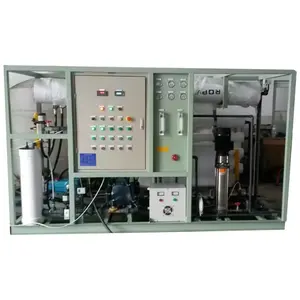











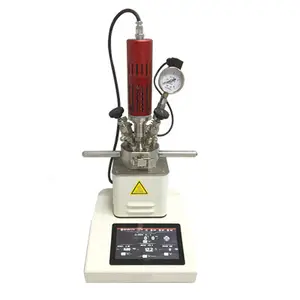






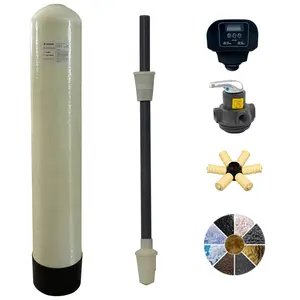
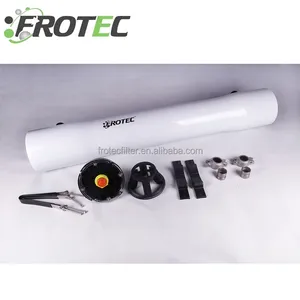
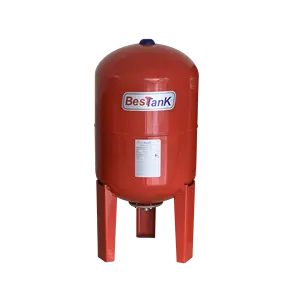
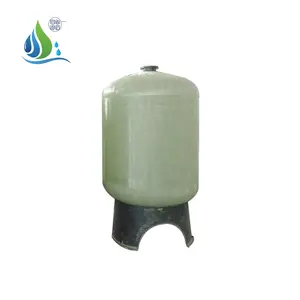






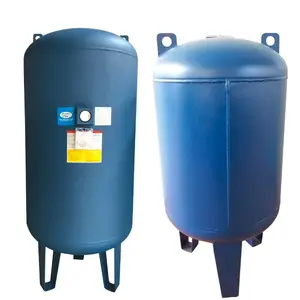
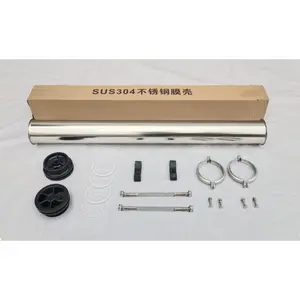
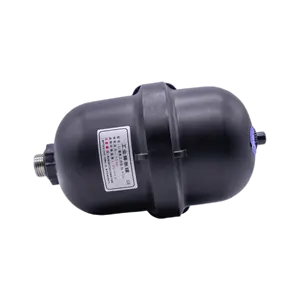







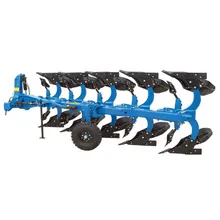

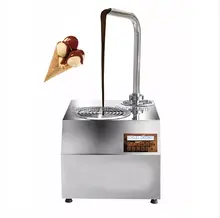





























 浙公网安备 33010002000092号
浙公网安备 33010002000092号 浙B2-20120091-4
浙B2-20120091-4